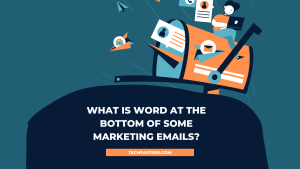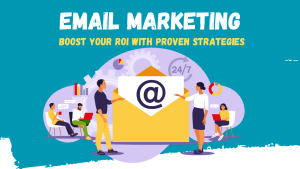Are you wondering how much house you can afford? Learn from Fintechzoom! Discover the essential steps to make informed decisions about your home buying journey.
Fintechzoom helps you understand your financial limits when buying a house. They provide tips on budgeting, saving for a down payment, and improving your credit score. By following their advice, you can make smart decisions and avoid financial stress. It’s all about knowing what you can afford and planning accordingly.
Key Points
Understanding how much house you can afford is crucial before embarking on the journey of homeownership. This comprehensive guide, inspired by Fintechzoom’s approach, will help you navigate the complex landscape of home buying. We’ll cover affordability assessments, mortgage qualifications, credit score improvements, down payment planning, budgeting, and much more. Let’s delve into the first section of this journey to ensure you make informed and financially sound decisions.
Read Also:A Comprehensive Coverage of Fintechzoom MSFT Stocks
The Instability in Housing Market
The housing market’s instability has been a growing concern for potential homeowners. Economic fluctuations, interest rate changes, and housing supply and demand imbalances contribute to this volatility. Understanding these factors is essential in making informed decisions about homeownership.
Economic Fluctuations
Economic factors like inflation, unemployment rates, and GDP growth can significantly impact the housing market. During economic downturns, property values might decrease, making it an opportune time for buyers with stable incomes to purchase homes at lower prices. Conversely, in a booming economy, home prices often rise, sometimes outpacing wage growth, making affordability a critical issue.
Interest Rate Changes
Interest rates play a pivotal role in determining how much house you can afford. When interest rates are low, borrowing costs decrease, allowing buyers to afford more expensive homes. However, rising interest rates can lead to higher monthly mortgage payments, thus reducing the amount you can borrow.
Table: Impact of Interest Rate Changes on Monthly Mortgage Payments
| Home Price | Loan Amount | Interest Rate | Monthly Payment |
|---|---|---|---|
| £300,000 | £240,000 | 3% | £1,012 |
| £300,000 | £240,000 | 4% | £1,145 |
| £300,000 | £240,000 | 5% | £1,288 |
Supply and Demand Imbalances
The supply and demand of housing also influence market stability. In areas with high demand but limited supply, home prices soar, making affordability a significant challenge. Understanding local market conditions can help you determine the best time to buy.
Fintechzoom: How Much House Can I Afford?

Fintechzoom provides tools and resources to help you understand how much house you can afford. By considering various financial factors, you can make a well-informed decision.
Affordability Assessment
Assessing affordability involves calculating how much you can reasonably spend on a house without compromising your financial stability. This includes evaluating your income, existing debts, and monthly expenses. A general rule of thumb is to spend no more than 28-30% of your gross monthly income on housing costs.
Case Study: John’s Affordability Assessment
John earns £4,000 per month. He has £500 in monthly debt obligations. Using the 28% rule, John should spend no more than £1,120 on housing costs. This includes his mortgage, property taxes, and insurance.
Mortgage Qualification
Mortgage qualification involves meeting the lender’s criteria for income, credit score, and debt-to-income ratio. Lenders use these factors to determine your eligibility for a loan and the terms they can offer.
Quote: “Your mortgage qualification hinges on your financial health, including your credit score and debt-to-income ratio.” – Fintechzoom
Credit Score Improvement
A higher credit score can secure better mortgage terms. Improving your credit score before applying for a mortgage can save you thousands in interest over the loan’s life. Pay bills on time, reduce outstanding debt, and avoid opening new credit accounts to boost your score.
Down Payment Planning
Planning for a down payment is crucial. A larger down payment reduces your loan amount and monthly payments. Aim for at least 20% of the home’s price to avoid private mortgage insurance (PMI).
Table: Down Payment Impact on Monthly Mortgage Payments
| Home Price | Down Payment | Loan Amount | Monthly Payment |
|---|---|---|---|
| £300,000 | £60,000 | £240,000 | £1,145 |
| £300,000 | £30,000 | £270,000 | £1,288 |
| £300,000 | £15,000 | £285,000 | £1,362 |
Budgeting and Cash Flow Management
Effective budgeting and cash flow management ensure you can comfortably afford your new home. Track your income and expenses, set financial goals, and adjust your budget as necessary. Use tools and apps to monitor your cash flow and stay on track.
Loan Approval
Getting pre-approved for a loan gives you a clear picture of how much you can borrow. It also makes you a more attractive buyer to sellers. The pre-approval process involves a thorough review of your financial situation by the lender.
Comparison Shopping
Shop around for the best mortgage rates and terms. Don’t settle for the first offer you receive. Compare rates from different lenders to ensure you get the most favourable terms.
Risk Management
Risk management involves preparing for potential financial setbacks. Maintain an emergency fund to cover unexpected expenses. Consider how job loss, health issues, or economic downturns might affect your ability to pay your mortgage.
Homeowner’s Insurance and Association
Homeowner’s insurance protects your investment from damage and liability. Understand what your policy covers and ensure it meets your needs. If your home is part of an association, factor in the association fees into your budget.
Read Also :Fintechzoom Disney Stock: Insights Revealed by Fintechzoom’s Analysis
Private Mortgage Insurance
Private mortgage insurance (PMI) is required if your down payment is less than 20% of the home’s price. PMI protects the lender if you default on your loan. Although it adds to your monthly payment, it allows you to buy a home with a smaller down payment.
Table: PMI Costs Based on Down Payment
| Home Price | Down Payment | PMI Rate | Monthly PMI Cost |
|---|---|---|---|
| £300,000 | £15,000 | 0.5% | £113 |
| £300,000 | £30,000 | 0.4% | £90 |
| £300,000 | £60,000 | 0% | £0 |
By thoroughly understanding these aspects, you can confidently determine how much house you can afford and proceed with your home buying journey with financial security and peace of mind.
Budgeting Basics When Planning to Buy a New Home

Effective budgeting is crucial when planning to buy a new home. It ensures that you can manage your finances, save for a down payment, and cover all associated costs without straining your budget. Let’s dive into the essential aspects of budgeting.
Income Tracking
Tracking your income is the first step in creating a budget. Understand your total monthly income from all sources, including salary, bonuses, and any side gigs. Knowing your exact income helps you allocate funds appropriately and prevents overspending.
Example: Monthly Income Breakdown
| Source | Amount (£) |
|---|---|
| Salary | 3,500 |
| Freelance Work | 500 |
| Investments | 200 |
| Total Income | 4,200 |
Expense Tracking
Keeping track of your expenses is equally important. Categorise your spending into essential and non-essential expenses. Essential expenses include housing, utilities, groceries, and transportation. Non-essential expenses cover dining out, entertainment, and hobbies.
Expense Categories and Examples
- Essential Expenses: Rent/mortgage, utilities, groceries, insurance, transportation.
- Non-Essential Expenses: Dining out, entertainment, subscriptions, travel.
Example: Monthly Expense Breakdown
| Category | Amount (£) |
|---|---|
| Rent/Mortgage | 1,200 |
| Utilities | 200 |
| Groceries | 400 |
| Insurance | 150 |
| Transportation | 300 |
| Dining Out | 150 |
| Entertainment | 100 |
| Subscriptions | 50 |
| Total Expenses | 2,550 |
Goal Setting
Setting financial goals helps you stay motivated and focused on your home buying journey. Goals can include saving for a down payment, reducing debt, or building an emergency fund. Be specific with your goals and set a timeline for achieving them.
SMART Goal Example
- Specific: Save £20,000 for a down payment.
- Measurable: Save £500 per month.
- Achievable: Adjust budget to allocate £500 monthly.
- Relevant: A larger down payment reduces loan amount and monthly payments.
- Time-bound: Achieve this goal in 40 months.
Budget Creation
Create a detailed budget that outlines your income, expenses, and savings goals. Use budgeting tools or apps to help manage your finances. Regularly review and adjust your budget to stay on track.
Sample Monthly Budget
| Item | Amount (£) |
|---|---|
| Income | 4,200 |
| Essential Expenses | 2,250 |
| Non-Essential Expenses | 300 |
| Savings | 500 |
| Down Payment Fund | 500 |
| Emergency Fund | 200 |
| Total Allocated | 4,200 |
Debt Management
Managing existing debt is crucial when planning to buy a new home. High levels of debt can affect your credit score and debt-to-income ratio, impacting your ability to qualify for a mortgage. Pay down high-interest debt first and avoid taking on new debt.
Debt Reduction Strategies
- Avalanche Method: Pay off high-interest debt first.
- Snowball Method: Pay off the smallest debts first for quick wins.
- Debt Consolidation: Combine multiple debts into a single loan with a lower interest rate.
Savings and Investments
Building your savings and investing wisely can provide a financial cushion and help you reach your home buying goals faster. Consider opening a high-yield savings account for your down payment fund and explore low-risk investment options.
Saving Strategies
- Automatic Transfers: Set up automatic transfers to your savings account.
- Cutting Unnecessary Expenses: Reduce non-essential spending.
- Side Gigs: Increase your income with freelance work or part-time jobs.
Expense Analysis and Reporting
Regularly analyse your expenses to identify areas where you can cut costs and save more. Generate monthly reports to track your progress and make necessary adjustments to your budget.
Alerts and Notifications
Use financial apps to set up alerts and notifications for bill payments, low balances, and spending limits. These reminders help you stay on top of your finances and avoid late fees or overdraft charges.
Read Also :FintechZoom CRM Stocks – Maximizing Investments with Expert Analysis
The Role of a Mortgage in Home Buying

A mortgage is a critical component of the home buying process. Understanding the types of mortgages, interest rates, and terms can help you make informed decisions.
Types of Mortgages
There are various types of mortgages available, each with its own set of terms and conditions. Common mortgage types include:
- Fixed-Rate Mortgage: The interest rate remains constant throughout the loan term, providing stability in monthly payments.
- Adjustable-Rate Mortgage (ARM): The interest rate is fixed for an initial period and then adjusts periodically based on market conditions.
- Interest-Only Mortgage: You pay only the interest for a specific period, after which you start paying both principal and interest.
- Government-Backed Loans: Loans like FHA, VA, and USDA loans are backed by the government and often have more lenient qualification requirements.
Interest Rates and Terms
Interest rates and loan terms significantly impact your monthly mortgage payments and the total amount paid over the loan’s life. Rates can vary based on market conditions and your creditworthiness. Loan terms typically range from 15 to 30 years, with longer terms resulting in lower monthly payments but higher overall interest costs.
Example: Impact of Interest Rates on Monthly Payments
| Loan Amount | Interest Rate | Term (Years) | Monthly Payment |
|---|---|---|---|
| £200,000 | 3% | 30 | £843 |
| £200,000 | 4% | 30 | £955 |
| £200,000 | 5% | 30 | £1,074 |
Calculating Potential Monthly Mortgage Payments
To calculate potential monthly mortgage payments, use the formula:
M=P(r(1+r)n(1+r)n−1)M = P \left( \frac{r(1+r)^n}{(1+r)^n-1} \right)M=P((1+r)n−1r(1+r)n)
Where:
- MMM = Monthly payment
- PPP = Principal loan amount
- rrr = Monthly interest rate (annual rate divided by 12)
- nnn = Number of payments (loan term in years multiplied by 12)
What Is the Debt-To-Income Ratio (DTI)?
The debt-to-income ratio (DTI) is a key factor lenders consider when approving a mortgage. It compares your monthly debt payments to your gross monthly income. A lower DTI indicates a healthier balance between debt and income.
DTI Calculation Example
If you have £1,500 in monthly debt payments and a gross monthly income of £4,500, your DTI is:
DTI=(1,5004,500)×100=33%\text{DTI} = \left( \frac{1,500}{4,500} \right) \times 100 = 33\%DTI=(4,5001,500)×100=33%
Importance of DTI in Affording a New House
A low DTI improves your chances of qualifying for a mortgage and securing better terms. Lenders typically prefer a DTI below 36%, though some may accept higher ratios based on other factors like credit score and down payment.
Considering Down Payments and Closing Costs
Down Payment
A down payment is a portion of the home’s purchase price paid upfront. It reduces the loan amount and impacts your monthly mortgage payments. A larger down payment can eliminate the need for PMI and lower your interest rate.
Example: Down Payment Impact
| Home Price | Down Payment | Loan Amount | Monthly Payment |
|---|---|---|---|
| £300,000 | £60,000 | £240,000 | £1,145 |
| £300,000 | £30,000 | £270,000 | £1,288 |
| £300,000 | £15,000 | £285,000 | £1,362 |
Closing Costs
Closing costs are fees paid at the end of the home buying process. They can include appraisal fees, title insurance, attorney fees, and more. Closing costs typically range from 2% to 5% of the home’s purchase price.
Example: Typical Closing Costs
| Fee Type | Cost (£) |
|---|---|
| Appraisal Fee | 400 |
| Title Insurance | 1,000 |
| Attorney Fees | 800 |
| Home Inspection | 300 |
| Total | 2,500 |
Saving Strategies
Saving for a down payment and closing costs requires discipline and planning. Here are some strategies to help you save:
- Set a Savings Goal: Determine how much you need to save and set a timeline.
- Automate Savings: Set up automatic transfers to a dedicated savings account.
- Cut Unnecessary Expenses: Reduce spending on non-essentials to boost savings.
- Earn Extra Income: Take on side gigs or freelance work to increase your income.
Factors to Consider to Know How Much You Can Afford to Spend on a New House

Job Stability and Future Income Prospects
Assessing job stability and future income prospects is crucial when determining how much house you can afford. A stable job with a steady income provides financial security, while potential raises or promotions can increase your purchasing power.
Long-Term Financial Goals
Consider how buying a home fits into your long-term financial goals. Ensure that homeownership aligns with other priorities like retirement savings, education funds, and travel plans.
Economic Factors
Stay informed about economic factors that could impact your financial situation, such as inflation, interest rates, and housing market trends. Understanding these factors helps you make more informed decisions.
Emergency Fund
Maintaining an emergency fund is essential for financial security. Aim to save 3-6 months’ worth of living expenses to cover unexpected costs like job loss or medical emergencies.
Fintechzoom.com
Example: Building an Emergency Fund
| Monthly Expenses | 3-Month Fund (£) | 6-Month Fund (£) |
|---|---|---|
| 2,500 | 7,500 | 15,000 |
Seeking Professional Advice to Know How Much House You Can Afford
Consultation Expectations
Consulting with financial advisors and mortgage brokers can provide valuable insights into how much house you can afford. They can help you understand your financial situation, explore mortgage options, and navigate the home buying process.
Quote: “Professional advice can offer tailored solutions and peace of mind when making significant financial decisions.” – Fintechzoom
FAQs
Is Fintechzoom’s advice personalised to my specific financial situation?
Fintechzoom provides general guidelines and tools to help you assess affordability. For personalised advice, consulting with a financial advisor or mortgage broker is recommended.
Are there any fees associated with using Fintechzoom?
Fintechzoom offers free tools and resources. However, always check for any premium services or features that might incur fees.
What should my down payment be for a £300,000 house in the UK?
Aim for a down payment of at least 20% (£60,000) to avoid PMI and secure better mortgage terms.
How does the debt-to-income ratio affect my mortgage qualification?
A lower DTI improves your chances of mortgage approval and better terms. Lenders typically prefer a DTI below 36%.
What is included in the mortgage stress test in the UK?
The mortgage stress test assesses whether borrowers can afford their mortgage payments under higher interest rates or financial strain. It ensures borrowers are not over-leveraged.
Conclusion,
Determining how much house you can afford is a multifaceted process that requires careful planning and consideration of various financial factors. By assessing your financial situation, managing your budget, understanding mortgage options, and seeking professional advice, you can make informed decisions that align with your long-term goals and ensure financial stability.

Biography
Richard Ford is a technologist with 10 years of experience in the Tech industry. He was born in Springfield, Illinois on March 12, 1983. Richard pursued a Bachelor’s degree in Computer Science from the University of Illinois. he specializes in AI development and cybersecurity.
He currently works at Techfasteer and Facebook. Richard’s passion for technology began at a young age as a junior software developer at a small startup. He then joined Techfasteer, where his work on AI algorithms gained widespread recognition. His expertise in cybersecurity was further honed at Facebook, where he played a crucial role in enhancing the platform’s security infrastructure.
Throughout his career, Richard has been awarded multiple industry accolades for his contributions to technology.
Published Works:
Fintechzoom Meta Stock Analysis
Teltlk – Innovating Communication
Richard Ford’s impact on the technology sector is profound, marked by his dedication to AI development and cybersecurity. His personal philosophy makes him a respected figure in his field. Richard’s legacy is one of passion, perseverance, and significant contributions to the tech industry.











